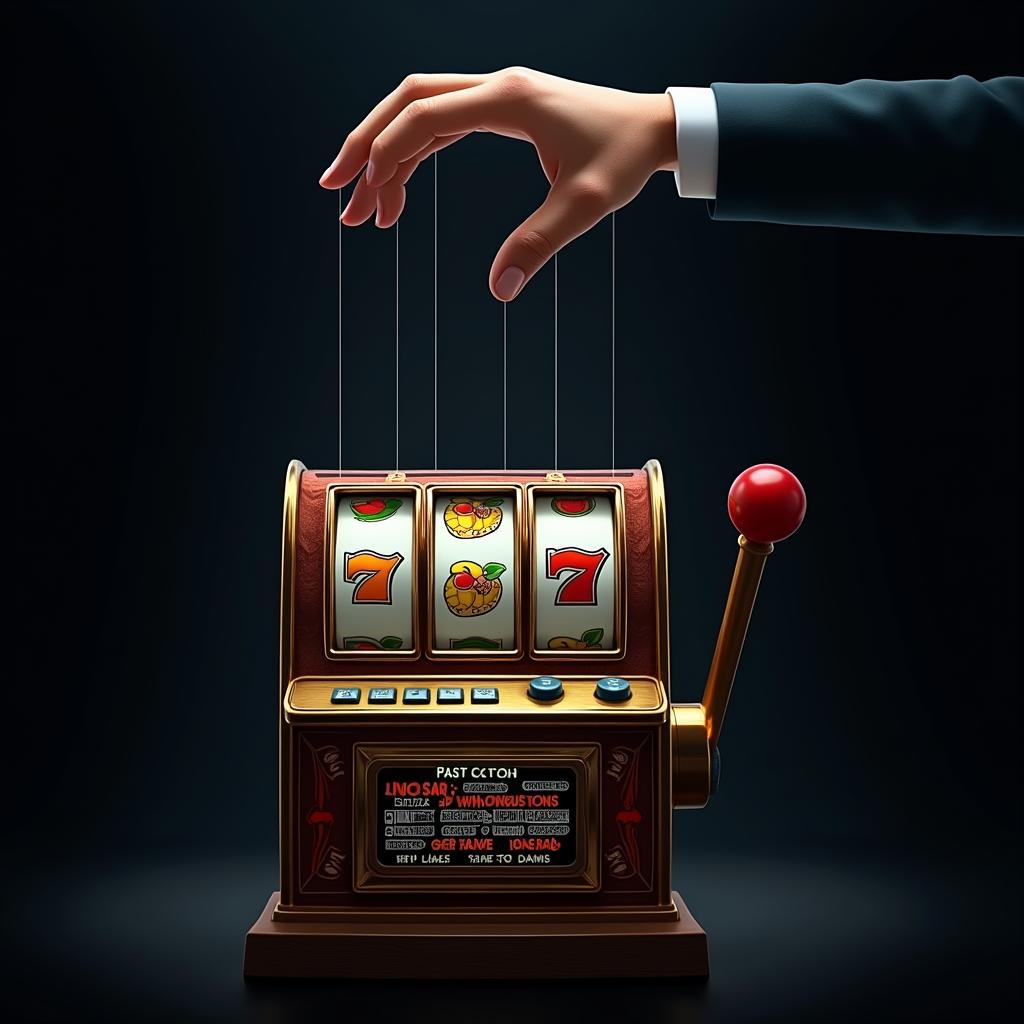When it comes to slot machines, one question lingers in the minds of countless players: Can casinos control the results and payouts? Slots are the ultimate symbol of chance, with their flashing lights and spinning reels promising the allure of life-changing jackpots. Back in the day, the lack of regulation in early online casinos meant players couldn’t be sure of anything.
But nowadays, behind the scenes, a mix of sophisticated technology and casino strategies govern how these machines work.
Table of Contents
At first glance, it might seem like slots are a pure game of luck. After all, you push a button, and the reels spin—what could be simpler? But as any seasoned casino-goer knows, there’s more to the story. As the saying goes, ‘Luck is what happens when preparation meets opportunity.’ Explore more gambling quotes for insights.
Factors like random number generators (RNGs), return-to-player (RTP) percentages, and house edge all play a part in determining how often those jackpots really hit. And while casinos can’t “rig” machines in the traditional sense, they absolutely have influence over the parameters that decide the payouts.
Understanding how these systems work isn’t just a peek behind the curtain—it’s a way to empower yourself as a player. In this article, we’ll break down how slot machines are programmed, the limits of casino control, and what it all means for your chances of walking away a winner.
How Do Slot Machines Work? / Introduction to Who Controls Slot Machine Odds
To truly understand whether casinos can control slot machine results and payouts, you first need to know how these fascinating machines operate. At their core, slot machines are a mix of cutting-edge technology and carefully crafted mathematical principles designed to keep players entertained while ensuring casinos remain profitable.
Modern slot machines rely on Random Number Generators (RNGs)—sophisticated algorithms that determine every spin’s outcome. These RNGs work at lightning speed, generating thousands of combinations per second, even when no one is playing. This ensures that every spin is independent, random, and impossible to predict. But don’t let the word “random” fool you—there’s an underlying system that controls how often the house wins versus the player.

This system is dictated by the Return to Player (RTP) percentage and house edge, two key concepts that casinos and slot manufacturers use to balance fairness with profitability. The RTP determines how much of the money wagered on a machine will be returned to players over time, while the house edge ensures the casino keeps its cut.
Who controls these odds? It’s a collaboration. Slot machine manufacturers set the game’s programming, while casinos choose specific configurations that fit their financial goals and player expectations. This interplay between design and implementation means there’s no single entity “rigging” the results, but there are certainly layers of control worth unpacking. To further enhance player engagement, casinos often implement loyalty programs and VIP schemes.
In the sections ahead, we’ll dive deeper into these concepts. From RNGs and RTP percentages to the regulatory bodies overseeing the fairness of games, you’ll get a clear picture of how slot machine odds are set—and who has a say in the process.
A Bit of Background on Legal Requirements
When it comes to slot machines, casinos don’t have free rein to do whatever they want. These games are subject to strict legal and regulatory requirements designed to ensure fairness and transparency for players. Whether you’re spinning reels in Las Vegas, Atlantic City, or an online casino, there’s a framework of rules in place to govern how slot machines operate.
At the heart of these regulations are gaming commissions and regulatory bodies. These organizations, such as the Nevada Gaming Control Board or the Malta Gaming Authority, are responsible for setting standards and overseeing compliance. They mandate that slot machines use certified Random Number Generators (RNGs) and meet specific Return to Player (RTP) thresholds to ensure fair play.
Manufacturers and casinos must also go through rigorous processes before a machine hits the floor. Independent testing labs, like GLI or eCOGRA, verify that the software and hardware comply with these regulations.
Once approved, machines are regularly audited to ensure they continue to meet legal standards.
Importantly, the laws vary depending on the jurisdiction. Some regions require a minimum RTP percentage, while others focus on transparency, like displaying payout rates to players. For online slots, additional layers of regulation ensure that games are secure and fair, even when played remotely.
Understanding these legal requirements helps debunk the myth that casinos can secretly “rig” machines at will. In the upcoming sections, we’ll explore key aspects of these regulations, including how testing and audits work, the role of licensing authorities, and what players should know about their rights and protections.
Why Control Over Slot Machines Matters

The question of control is at the heart of understanding how slot machines operate and why it matters to players. Casinos, manufacturers, and regulatory bodies all play distinct roles in determining the odds, payouts, and overall experience of playing slots.
But how much influence each party has—and what that means for you as a player—is a critical point to unpack.
Slot machine manufacturers are the architects of the games. They design everything from the reels and themes to the Random Number Generators (RNGs) and Return to Player (RTP) settings. Casinos, on the other hand, have a say in how these machines are configured for their floors, choosing options that align with their financial goals and player preferences.
This interplay raises an important question: does it matter who controls what? Absolutely. For one, the entity in control shapes your odds of winning and the entertainment value of the game. Casinos might opt for lower RTP settings to boost their bottom line, while manufacturers could design games with features that encourage longer play sessions.
Regulatory oversight is another essential piece of the puzzle. Without independent bodies to monitor fairness, players could be at risk of unfair practices. These regulators ensure that neither casinos nor manufacturers overstep boundaries, giving players confidence that the game is honest.
In the following sections, we’ll break down the specific roles of manufacturers, casinos, and regulators, and why their actions directly impact your experience. From understanding how RTP settings are chosen to uncovering how regulatory audits protect players, you’ll gain insight into why control isn’t just a technical detail—it’s a critical aspect of the game.
Can Casinos Control Slot Machine Results and Payouts?
This is the million-dollar question—literally. Casinos might seem like they have full control over slot machines, but the reality is far more nuanced. While casinos do have influence over certain aspects of slot machines, such as payout percentages and game selection, they don’t directly control the outcome of each spin.
The key lies in the technology. Slot machines are powered by Random Number Generators (RNGs), which ensure every spin is independent and random. This means that no matter how much you’ve won or lost, the next spin isn’t influenced by previous outcomes. Casinos can’t “rig” results on demand, but they can select machines with specific Return to Player (RTP) percentages to align with their profit goals.
It’s also important to understand that slot machines are pre-programmed within regulated limits. For example, a casino may choose a machine with an RTP of 92% or 96%, depending on the jurisdiction and their strategy. This selection doesn’t mean they control your individual results, but it does influence the long-term payouts across all players.
Understanding how to manage your bankroll effectively is crucial when engaging with slot machines. For insights into utilizing casino credits responsibly, refer to our article on casino credits and loans.
Ultimately, while casinos have some control over how slot machines are configured and deployed, they operate within strict legal and technological frameworks that prevent them from outright manipulating results. In the next sections, we’ll explore how these frameworks ensure fairness, and what role casinos play in shaping your odds of hitting the jackpot.

